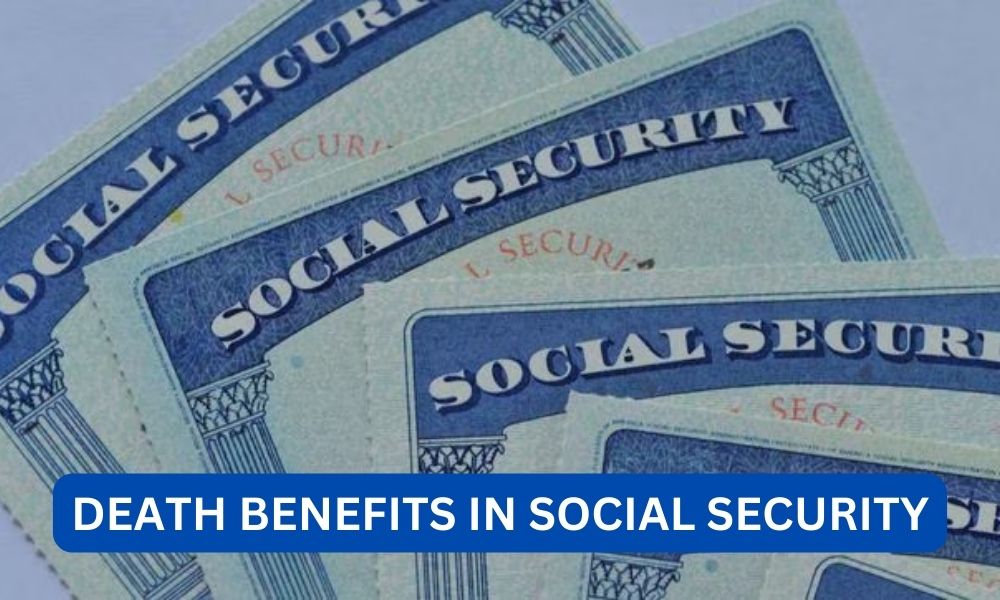Social Security is a federal program that provides financial assistance to individuals and families in the United States. One of the benefits offered by Social Security is death benefits, which are payments made to the surviving family members of a deceased individual. These benefits can help ease the financial burden that comes with the loss of a loved one. However, not everyone is entitled to receive death benefits from Social Security. In this article, we will explore who is entitled to death benefits in Social Security and the eligibility requirements for these benefits.
Contents
Who is Eligible for Death Benefits in Social Security?
According to the Social Security Administration (SSA), the following individuals are eligible to receive death benefits:
- Spouse of the deceased
- Children of the deceased
- Parents of the deceased
- Dependent grandchildren of the deceased
- Ex-spouse of the deceased (under certain circumstances)
Let’s take a closer look at each of these categories and the eligibility requirements for death benefits.
Spouse of the Deceased
The spouse of the deceased is entitled to receive death benefits if they were married to the deceased for at least nine months before their death. However, there are exceptions to this rule. If the death was accidental or if the spouse is caring for a child of the deceased who is under the age of 16, the nine-month requirement may be waived.
Read:do i need health insurance if i have va benefitsIn addition, the spouse must be at least 60 years old to receive full benefits. If they are between the ages of 50 and 59, they may receive reduced benefits. If the spouse is disabled, they may be eligible for benefits at any age.
Children of the Deceased
Children of the deceased may be eligible for death benefits if they are under the age of 18, or under the age of 19 if they are still in high school. Children who are disabled may also be eligible for benefits at any age.
It’s important to note that stepchildren, adopted children, and grandchildren may also be eligible for death benefits if they meet certain criteria. For example, stepchildren must have been dependent on the deceased for at least one year before their death, and adopted children must have been legally adopted by the deceased before the age of 18.
Parents of the Deceased
If the deceased was providing at least half of their parents’ financial support, their parents may be eligible for death benefits. This includes biological parents, adoptive parents, and stepparents who were married to the deceased for at least one year before their death.
Read:How to upload documents on your texas benefits?Dependent Grandchildren of the Deceased
In some cases, dependent grandchildren of the deceased may be eligible for death benefits. To qualify, the grandchild must have been dependent on the deceased for at least half of their financial support and must not have a living parent who is capable of providing support.
Ex-Spouse of the Deceased
In certain situations, an ex-spouse of the deceased may be eligible for death benefits. To qualify, the ex-spouse must have been married to the deceased for at least 10 years, must not have remarried, and must be at least 60 years old (or 50 years old if they are disabled).
How Much are Death Benefits in Social Security?
The amount of death benefits a person is entitled to receive depends on various factors, including their relationship to the deceased and the deceased’s work history. The average monthly death benefit in 2021 is $1,277, but this amount can vary significantly.
For spouses, the amount of death benefits is based on the deceased’s earnings. If the deceased was receiving Social Security benefits at the time of their death, the spouse may be entitled to receive the same amount. If the deceased was not receiving benefits, the spouse may receive a one-time payment of $255.
Read:How much is unemployment benefit?For children, the amount of death benefits is also based on the deceased’s earnings. Each child may receive up to 75% of the deceased’s benefit amount, with a maximum family benefit of 150% to 180% of the deceased’s benefit amount.
For parents, the amount of death benefits is based on the deceased’s earnings. Each parent may receive up to 82.5% of the deceased’s benefit amount, with a maximum family benefit of 75% to 87.5% of the deceased’s benefit amount.
For dependent grandchildren, the amount of death benefits is based on the deceased’s earnings. Each grandchild may receive up to 75% of the deceased’s benefit amount, with a maximum family benefit of 150% to 180% of the deceased’s benefit amount.
How to Apply for Death Benefits in Social Security
If you believe you are entitled to receive death benefits from Social Security, you must apply for them. You can apply by visiting your local Social Security office, calling the SSA’s toll-free number, or applying online through the SSA’s website.
When applying for death benefits, you will need to provide various documents, including the deceased’s death certificate, your birth certificate, and your marriage certificate (if applicable). The SSA may also ask for additional documents to verify your relationship to the deceased and your eligibility for benefits.
It’s important to note that the application process for death benefits can be complex and time-consuming. If you are unsure about your eligibility or need assistance with the application process, it’s recommended to seek help from a Social Security attorney or advocate.
Common Misconceptions About Death Benefits in Social Security
There are several misconceptions about death benefits in Social Security that can lead to confusion and misunderstandings. Let’s address some of the most common misconceptions:
Only the Spouse is Entitled to Death Benefits
As we discussed earlier, the spouse of the deceased is not the only person who may be entitled to receive death benefits. Children, parents, and dependent grandchildren may also be eligible for benefits under certain circumstances.
Death Benefits are Taxable
Many people believe that death benefits from Social Security are taxable, but this is not always the case. If the only income you receive is from Social Security, your benefits are not taxable. However, if you have other sources of income, a portion of your death benefits may be taxable.
You Must be a U.S. Citizen to Receive Death Benefits
Non-U.S. citizens may also be eligible for death benefits in Social Security. However, there are certain requirements that must be met, such as having a valid Social Security number and being a legal resident of the United States.
Case Study: The Importance of Death Benefits in Social Security
Let’s take a look at a real-life example of how death benefits in Social Security can make a significant impact on a family’s financial situation.
John and Mary were married for 25 years before John passed away unexpectedly. John was the sole breadwinner of the family, and Mary was a stay-at-home mom to their two children. After John’s death, Mary was left with no source of income and was struggling to make ends meet.
Fortunately, John had been paying into Social Security for many years, and Mary was eligible to receive death benefits. With the help of these benefits, Mary was able to pay for her living expenses and provide for her children. This financial support was crucial for Mary and her family during a difficult time.
Conclusion:
In conclusion, death benefits in Social Security can provide much-needed financial assistance to the surviving family members of a deceased individual. Spouses, children, parents, dependent grandchildren, and even ex-spouses may be eligible to receive these benefits. It’s important to understand the eligibility requirements and application process to ensure you receive the benefits you are entitled to. If you have any questions or need assistance, it’s recommended to seek help from a Social Security attorney or advocate. Remember, death benefits can make a significant impact on a family’s financial situation, so it’s essential to be informed and take advantage of these benefits if you are eligible.









